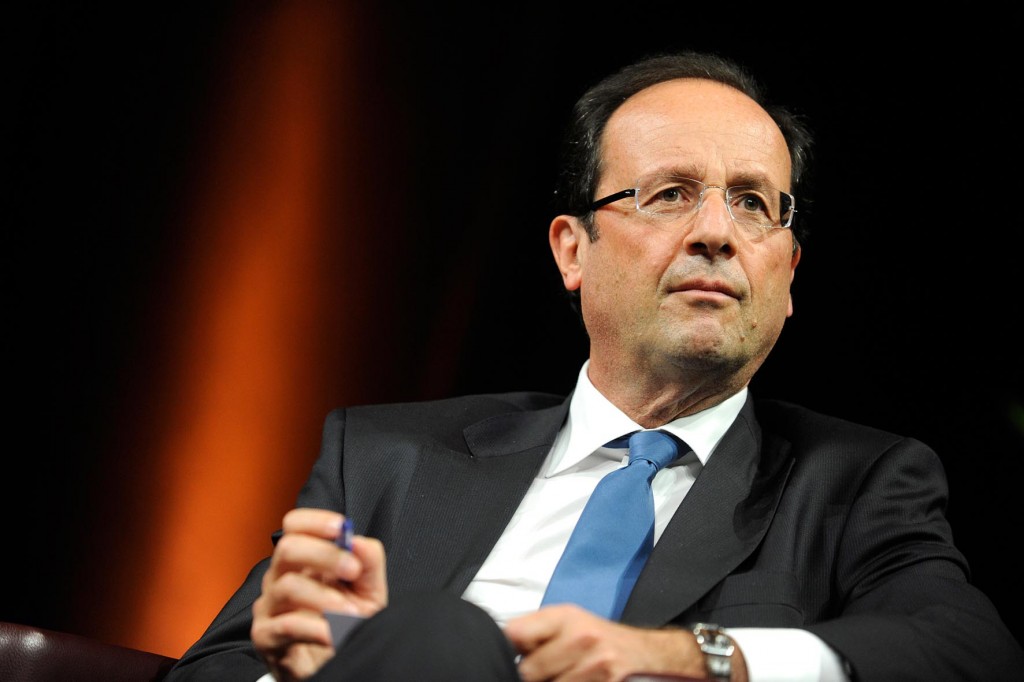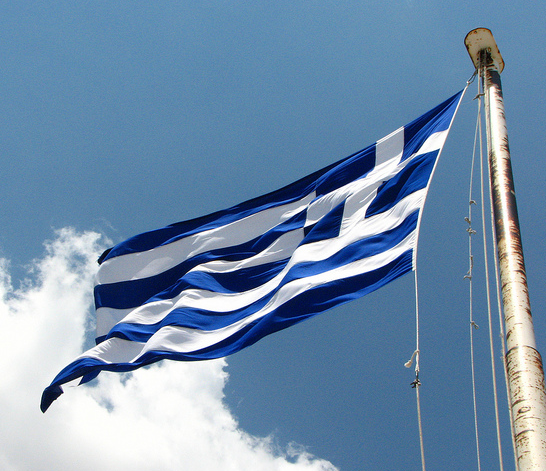On the night of his election, François Hollande gave a nod to Europe and to the anti-austerity stance that he had taken during his campaign. “The moment the result [of his victory] was announced,” he said, “I was sure that in many European countries, the news was both relief and hope—the idea that finally austerity will no longer be the only way.”
Of course, Hollande didn’t defeat Sarkozy in a referendum about European economic policy. His victory was a function of French domestic politics; of deep discontent with Sarkozy’s “bling-bling” style and a depressed economy, and of an Obama-style campaign that rallied young voters to its cause. But from his victory speech to the media coverage of his election, it was clear that a change in government in France meant a change in approach to macroeconomics on a European level.
Or at least, it should have.
Because François Hollande in 2012 understood what François Hollande and his government still understand in 2015—that the real threat to the Euro and to Europe was the potential for a debt-deflationary spiral, and the transformation of an economic crisis into an economic and political one.
As we know from economic theory—from Irving Fisher (“the more debtors pay, the more they owe”) to textbook macro—and plenty of Greece-specific economic data and research, even from the IMF itself, cutting spending in a depressed economy is contractionary. So much spending has to be cut to produce budget surpluses that the economy falls even more, along with inflation. Wages and prices fall, economic output decreases, the government receives less revenue, and its debt repayment becomes even harder.
This is exactly what has happened in Greece, where the bailouts and IMF programs have never once met their targets, and where debt has only increased back to 175% of GDP since the initial haircuts levied on private creditors brought it down to 155%. All of this despite one of the most massive fiscal adjustments ever undertaken by anyone, anywhere. By such logic has Greece entered a spiral where EU imposed austerity has raised, not lowered, its debt, and produced economic hardship, misery, and ironically, lowered creditors’ chances of being repaid in full.
The great failure of Hollande is that he combined recognition of the problem with a lack of the political leadership necessary to effect change. On a domestic level, the proof is in his poll numbers, which have barely budged above 25% in years. On a European level, the proof is in the economic approach that has brought Greece to ruin, and the political approach–the attempts at a soft coup–that threatened to sink Europe’s moral legitimacy almost as low as Hollande’s approval ratings.
It’s understandable that upon becoming president, Hollande wouldn’t have wanted to rock the Franco-German relationship that has underpinned Europe since its inception. Understandable that the logic of a united front in the face of crisis was appealing, and that no president would have wished to break with his German partner. And so candidate Hollande became president Hollande, who took a passenger’s seat, attempting to nudge the driver rather than grab for the wheel.
But France is as crucial an actor in any European decision as is Germany, and now Greece’s “No” vote has given Hollande a second chance. A chance to be the leader that he should have been from the beginning. A chance to redirect Europe from a path of economic and political muddling to one that may not be easier, but holds far more promise for a country, a continent, the legitimacy of its institutions, and the generation that will inherit them. A chance not to break the Franco-German partnership, but to speak as only a friend and a partner can.
In a week that saw a rhetoric of doom spill from the mouths of European leader after European leader, France already stood apart as the more mature negotiating partner in the game.
“Whatever the outcome of the vote, we’ll have to resume political talks,” stated Economy Minister, Emmanuel Macron. “Let’s not repeat the Treaty of Versailles.”
With those few words, Macron showed that Hollande’s administration is perhaps the last in Europe to really get it. That the Greek story is about far more than economics. That economic disaster in Greece is a European choice, and that an EU responsible for social and economic implosion in a European nation will shudder from the political reverberations that would result.

Photo credit: Jean Marc Ayrault, Flickr CC. License available here
What then, should Hollande do now?
He has to say that in no uncertain terms will Greece be pushed out of the euro against its will. That Greece is a full and equal member of the European Union, and that scare tactics have no place. The attempted blackmail by prominent Europeans that Greece was flirting with an exit from the EU, or that the referendum was a either a yes or no to Europe, succeeded only in tarnishing the reputation of the institution they serve. Economic policy may come or go—Greece’s political identity and membership in the EU-28 will never be imperiled.
Economic truths will not determine what happens next, politics will. There are those who will want to punish Greece, to set an example. Allowing Greece too much leeway, restructuring its debts, agreeing to a new bailout package, and keeping liquidity flowing to its banks will just be moral hazard, and incentive for far-left parties in Spain and Portugal to attempt the same thing, they will say. And to some extent (politically, though not economically), they may be right. Perhaps a shift in policy towards Greece will empower Podemos in Spain.
Their solution, however, would be dead wrong. They would seek to ring fence Europe with blocks pulled out of the Jenga tower of its construction, in the process ensuring only that it crumbles from within. Unwittingly, they would feed the growth of Eurosceptic and radical right parties that are surging in France and elsewhere. This too, Hollande understands. If a crumbled Greece is what the European Union offers, what then its claim to continued existence? Adding a social and political crisis to an economic one serves only the interests of extremists who would exploit it for their own gain.
Hollande needs to publicly proclaim what everyone paying attention already realizes. That the best chance for creditors to get paid back is to restore growth, which can only begin when outsized austerity ends. Angela Merkel has dominated the Eurozone approach to Greece and the economic crisis for years, and she has led Europe almost to the edge of failure. Only a France—and a Hollande—that is committed, sure of itself, and willing to grasp the reins of leadership can pull Europe out confidently onto another path.
Greece’s vote was nothing less than the Republican cry of a people who have had enough. And if Hollande can just remember what it was like to be a candidate for president, then who better to answer it than the French Republic?
Featured image credit: Wikipedia, CC. License available here

